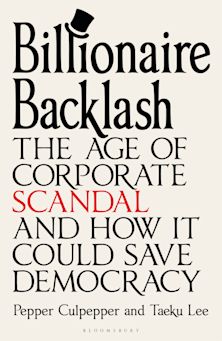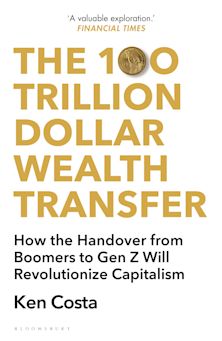- Home
- NON-FICTION
- Politics, Current Affairs & Culture
- The Breakdown of the State in Lebanon, 1967–1976
The Breakdown of the State in Lebanon, 1967–1976
This product is usually dispatched within 3 days
- Delivery and returns info
-
Free US delivery on orders $35 or over
You must sign in to add this item to your wishlist. Please sign in or create an account
Description
Why did the Lebanese state, the most open and democratic political system in the Middle East, break down between 1967 and 1976? In this major contribution to the debate, Fazel el-Khazen rejects the standard explanations of the Lebanese Civil War and argues instead that the causes were due to the official state ideology, which recognized diversity, dissent and a highly pluralistic population, and then specific external factors: pressures from the Arab-Israeli Conflict, inter-Arab rivalries, and the Palestine Liberation Organization's close connection to Lebanese politics. Using an historical analysis, el-Khazen sheds light on the political situation of the country in the lead up to the conflict and the major role Lebanon's neighbours had in the events. The detailed and comprehensive account uses interviews with the key protagonists in the civil war and analysis of unpublished sources to reveal how and why the breakdown took place.
Table of Contents
Introduction: situating the breakdown
The shortcomings of the Lebanese system
In the pre-war period - the academic debate
Part 2
The political and communal scene in pre-war Lebanon: the uneven communal development of Lebanese society
Varying paths to communal Za'ama - Maronite and Sunni; communal disparities and state politics
Part 3
The Lebanese State and the Arab State system: state-society relations - situating the Lebanese Sate
The Lebanese Stet and the Arab State system - varying paths and power
The porous Lebanese State and the Arab State system
PLO define of state authority - Jordan versus Lebanon
Part 4
The post-1967 PLO and Lebanese politics: Palestinian presence in Lebanon until 1968
The making of the Cairo Agreement
The limits to state power - Chehabism and the PLO
Part 5
The political process - internal and external dimensions, 1970-1974: the years of uncertainty, 1970-72
The year of living dangerously, 19734
The aftershocks of the 1973 war and Lebanese politics, 1974
Part 6
The pre-war scene: the internal scene prior to the outbreak of war
Power-sharing - from independence to the war
Socio-economic factors and the war
The Sidon disturbances - fishermen's protest or a Palestinian show of force?
Part 7
Lebanon's multi-faceted war - 1975-76: the 'Ayn al-Rummaneh confrontation - the inevitable trigger
The breakdown of the confessional political process
Anarchy, wartime reform and dialogue
The changing war - the constitutional document and its aftermath
The Palestinian-Syrian war
Ending the war
Part 8
The inevitable breakdown: the PLO armed presence an its impact on Lebanese politics and society
Conflicting images of the state and its structural dichotomy
The inevitable confrontation - a state in search of stability, a revolution in search of a state
War continues - the arab-Israeli conflict and the Arab "civil war"
Product details
| Published | Dec 24 2020 |
|---|---|
| Format | Paperback |
| Edition | 1st |
| Extent | 440 |
| ISBN | 9780755600908 |
| Imprint | I.B. Tauris |
| Dimensions | 9 x 6 inches |
| Publisher | Bloomsbury Publishing |
About the contributors
Reviews
-
In a massively researched, factually reliable, and politically centrist interpretation…[el Khazen] provides what will surely become the authoritative account of Lebanon's slide to war. As the title implies, el Khazen sees the weakening of the Lebanese government as the central development in the period following the 1967 Six-Day War… He is scathing on the press coverage of the PLO's role in the conflict-and also that of Western scholars-for their willingness 'to accept the Palestinian version of the story.
Daniel Pipes, Middle East Quarterly
-
Some works are works of a lifetime. And this book is in that tradition. Everything about this scholar's life has led him to this book. Lebanon has been his home and vocation and calling. No one else in our field of Middle Eastern Studies could or would produce a book of this weight and seriousness and knowledge. Its mine of information, its interviews with the protagonist in that drawn-out struggle over Lebanon, the rich, textured data are all testimonies to a voracious commitment to tell Lebanon's tale. Straddling the boundaries of politics and history, this able, knowing, discerning book has mini-histories of all of Lebanon's communities. It situates Lebanon in its region, and in the world, and tells of what became of a land without a strong state of its own in a world of other, more powerful states. Others have written of Lebanon's politics. The Breakdown of the State in Lebanon exceeds them all in power and integrity and knowledge and research and detail. A study that should make its way in Middle Eastern affairs as the definitive account of modern Lebanese politics
Fouad Ajami, Johns Hopkins University
-
El-Khazen's book is the most comprehensive and scholarly assessment of the years leading up to the civil war in Lebanon and the "breakdown" of the Lebanese republic ... [a] groundbreaking book
George Emile Irani, The Middle East Journal
-
In this ambitious book, Farid El-Khazen gives a detailed, chronological and thematic account of the years immediately preceding the breakout of the Lebanese civil war in 1975 through to the (temporary) cessation of armed confrontation in mid-1976.
Jens Hanssen, Journal of Islamic Studies



































